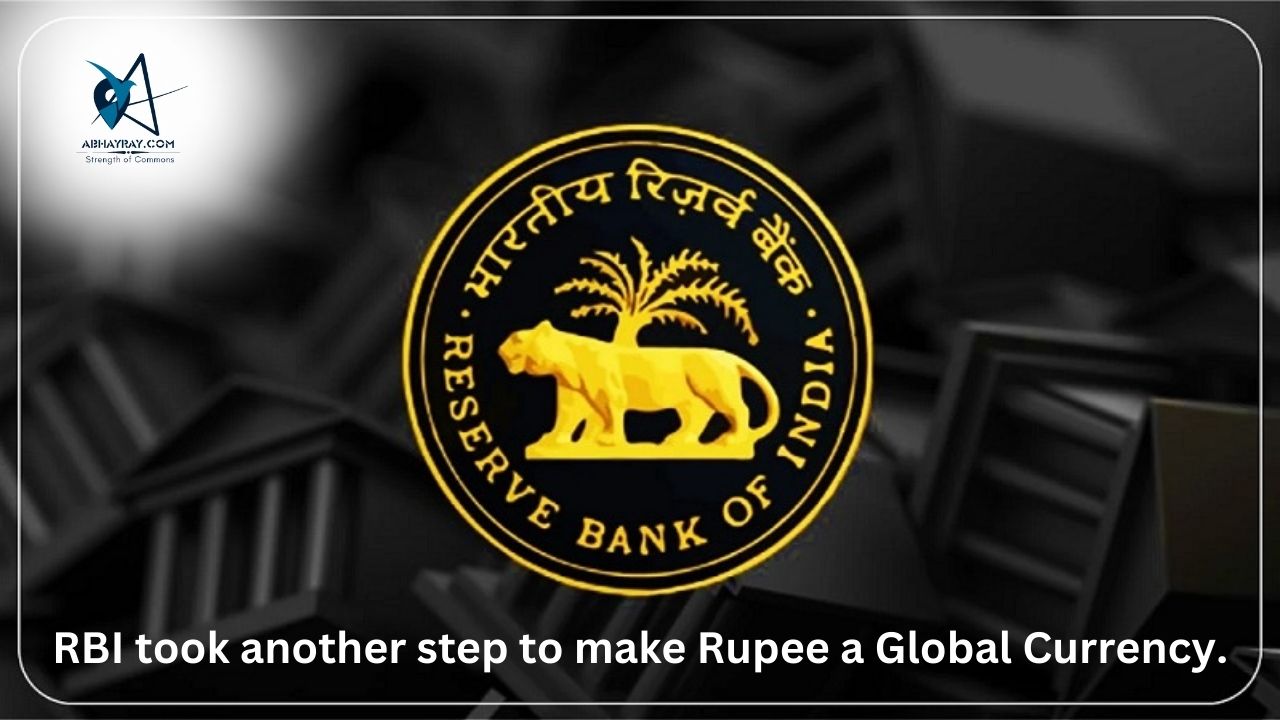Introduction
In a significant push to enhance the global usage of the Indian Rupee (INR) and local currencies for cross-border transactions, the Reserve Bank of India (RBI) has liberalised key regulations under the Foreign Exchange Management Act (FEMA), 1999. These reforms are designed to strengthen India’s trade and investment framework, reduce reliance on dominant foreign currencies like the US Dollar, and bolster the INR’s global standing.
Goal to Increase Rupee’s International Usage
The RBI has introduced new rules designed to simplify and encourage the use of the Indian Rupee in international trade and investment. This step is part of India’s broader strategy to strengthen the global position of the rupee.
INR Accounts for Overseas Residents
Overseas branches of Authorized Dealer (AD) banks can now open INR accounts for non-residents. These accounts will facilitate current and capital account transactions with Indian residents, streamlining cross-border settlements.
Transactions Between Non-Residents in INR
Non-residents can now use balances in their repatriable INR accounts, including Special Non-resident Rupee Accounts (SNRAs) and SRVAs, to conduct transactions with other non-residents. This opens new avenues for INR-based trade and settlements outside India.
Flexibility for Exporters
Indian exporters are now permitted to open foreign currency accounts overseas to receive export proceeds and utilise these funds for paying for imports. This move enhances operational flexibility and reduces currency conversion costs.
The latest announcement follows a series of measures initiated by the RBI in July 2022, including the introduction of Special Rupee Vostro Accounts (SRVAs), which allowed foreign banks to establish Rupee accounts with Indian banks. This was further complemented by Memorandums of Understanding (MoUs) with central banks of the UAE, Indonesia, and the Maldives, enabling greater bilateral trade in local currencies. These measures are a step towards internationalizing the Indian Rupee and promoting it as a viable currency for global trade.
Support for Foreign Investment :
- Attracting Global Investors
By promoting the rupee for investment purposes, the RBI aims to attract more foreign direct investment (FDI) into India. With easier currency conversion and transaction mechanisms, it becomes more attractive for global investors to engage with India’s markets.
- Streamlined Investment Processes
The rules help investors easily access Indian financial markets, as they can now directly invest in INR rather than converting their funds to foreign currencies. This can increase liquidity and potentially lower transaction costs for foreign investors.
Simplifying Cross-Border Transactions for Traders :
- Easier Payment Methods
The new rules make it easier for Indian businesses to transact in INR with international partners. These measures aim to remove barriers related to foreign exchange conversion and facilitate smoother trade flows.
- Less Dependence on the US Dollar
The move reduces reliance on the US dollar for cross-border trade, which could lower currency risk for Indian traders and businesses. This can also help in mitigating the volatility of exchange rates, providing more stability to the market.
Strengthening India’s Position in Global Trade :
- Potential for INR to Gain International Recognition
With increasing use of INR in cross-border trade, it has the potential to be recognized as a global currency, similar to the US dollar, Euro, or Chinese yuan. This could improve India’s economic influence and elevate the rupee’s standing in global financial systems.
- Building Global Confidence
As India expands its economic footprint on the global stage, encouraging the use of INR can help improve investor and business confidence in the country’s economic stability.
The Future of INR in International Markets
The RBI’s move could encourage more countries to enter into trade agreements with India, using INR as the preferred currency for bilateral trade. This could significantly reduce the transaction costs and improve the ease of doing business with India.
As India continues to grow as a global economic player, the long-term vision is for INR to become a key currency in international reserves, further solidifying its role as a stable, reliable medium for global trade.
What will the Customers get Benefit from this
These accounts can be used for obtaining export earnings, remitting advanced and settlement of import payments. Apart from this, NRI will have the option to keep the money earning according to its need and use it. However, it will be necessary for exporters to bring back any balance ie remaining funds to India by the end of next month.
For example, no NRI in the US can now open an account in the New York branch of AD Bank registered in India. With this, he will be able to keep the money received for export in India and will be able to use the remaining amount of money for commercial payment to someone living in India.
Conclusion
The RBI’s new measures mark a significant step in making INR a global currency. By simplifying cross-border transactions, encouraging local currency usage, and reducing dependency on foreign currencies, the RBI is strengthening India’s position in the global economy. These changes open up new avenues for businesses, exporters, and investors to engage in more efficient and cost-effective international trade. Over time, this could lead to an even more prominent role for the Indian Rupee on the world stage.
GMICapitals.com RaysVeda.com GetMyStartup.com LawCanal.com GetMyIndia.com ZinCob.com Angeltors.com

